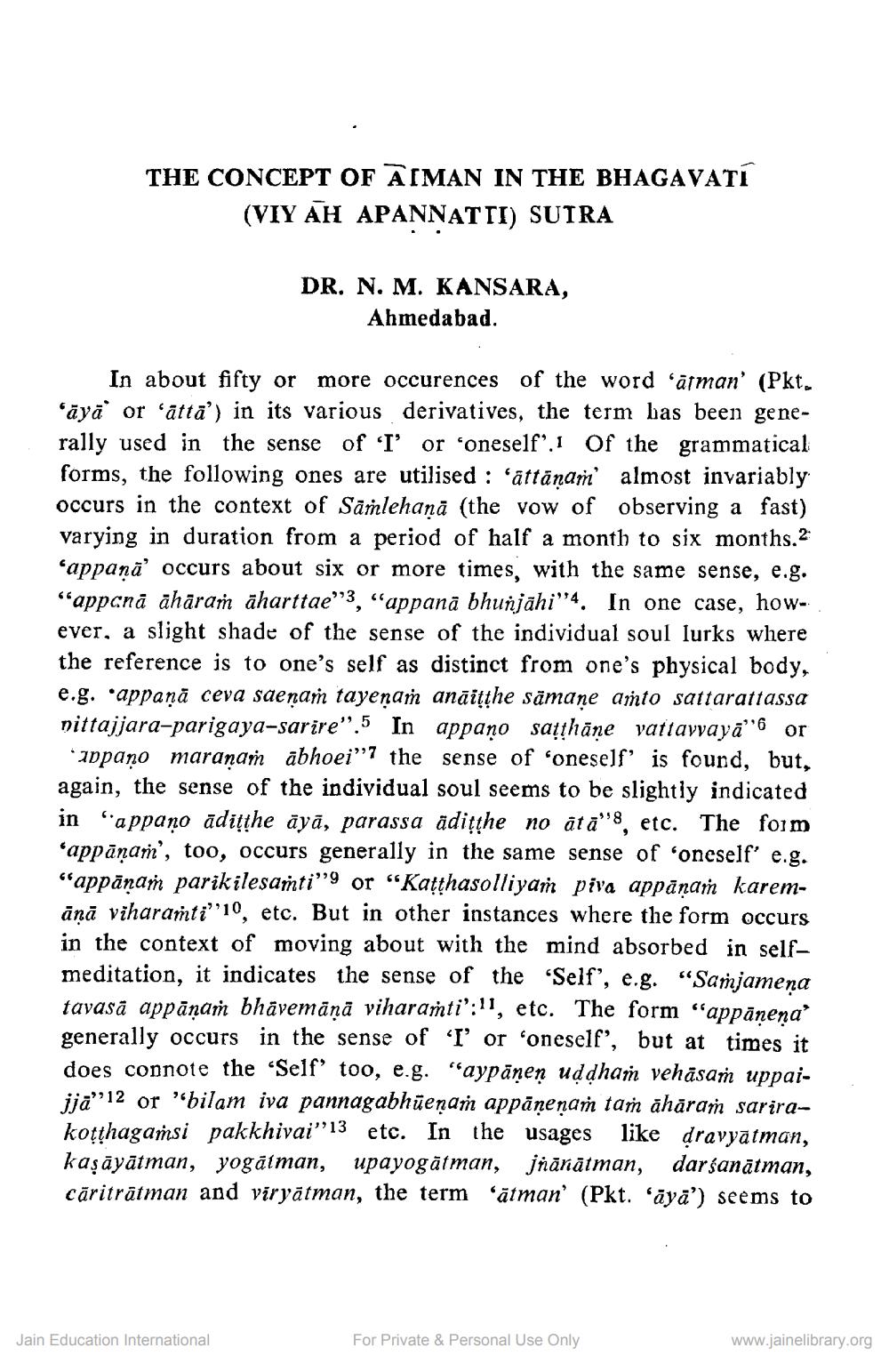________________
THE CONCEPT OF AIMAN IN THE BHAGAVATI (VIY AH APANNATTI) SUTRA
DR. N. M. KANSARA,
Ahmedabad.
of the word 'arman' (Pkt.
In about fifty or more occurences 'āyā' or 'ātta') in its various derivatives, the term has been generally used in the sense of 'I' or 'oneself'. Of the grammatical forms, the following ones are utilised: 'ättänam' almost invariably occurs in the context of Samlehanā (the vow of observing a fast) varying in duration from a period of half a month to six months.2 "appana' occurs about six or more times, with the same sense, e.g. "appanā āhāram āharttae"3, "appana bhunjahi". In one case, however, a slight shade of the sense of the individual soul lurks where the reference is to one's self as distinct from one's physical body, e.g. appană ceva saenam tayeṇam anaiṭṭhe sāmane aṁto sattarattassa nittajjara-parigaya-sarire".5 In appano saṭṭhāne vattavvayā"6 or
appano maraṇam abhoei" the sense of 'oneself' is found, but, again, the sense of the individual soul seems to be slightly indicated in "appano ādiṭṭhe āyā, parassa ädiṭṭhe no ātā"8, etc. The form 'appāṇam', too, occurs generally in the same sense of 'oneself' e.g. "appāṇam parikilesamti" or "Kaṭṭhasolliyam piva appāṇaṁ karemāṇā viharamti''10, etc. But in other instances where the form occurs in the context of moving about with the mind absorbed in selfmeditation, it indicates the sense of the 'Self', e.g. "Samjamena tavasā appāṇaṁ bhāvemāṇā viharaṁti':', etc. The form “appāṇeṇa' generally occurs in the sense of 'I' or 'oneself', but at times it does connote the 'Self' too, e.g. "aypänen uḍḍham vehāsaṁ uppaijja" 12 or "bilam iva pannagabhūeṇam appāṇenam tam āhāram sarirakotthagamsi pakkhivai" 13 etc. In the usages like dravyatman, kaṣāyātman, yogātman, upayogātman, jñānātman, darśanatman, căritrātman and viryātman, the term 'atman' (Pkt. 'āyā') seems to
Jain Education International
For Private & Personal Use Only
www.jainelibrary.org




